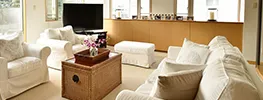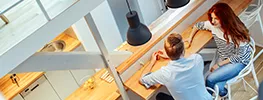Home Inspections in Japan
While common in Western countries, in Japan home inspections before purchasing or selling a home is rare. The Japanese government is currently pushing forward the development of laws regarding effective use of home inspections when purchasing or selling pre-owned homes. The purpose being not only to raise the standards of home inspections but also to stimulate the pre-owned housing market.
We have prepared a brief explanation of what is involved in the newly advised “Home Inspection” after the amendment to the “Building Lots and Buildings Transaction Business” Act that will into effect in April 2018.
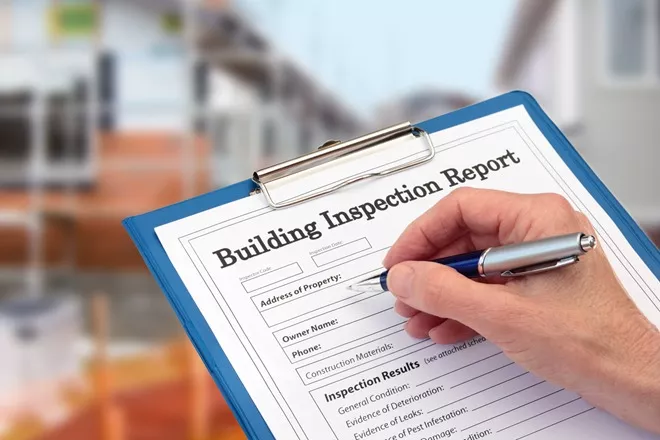
What is a Home Inspection?
A home inspection involves visually checking for deterioration or defects (cracks or leaks in foundation or outer walls) and measuring various parts of a home to make sure everything is level. This process takes place when selling or buying a pre-owned home. The home inspection will be conducted by a qualified architect who has completed the relevant training course and has been registered in Japan as a technical expert for inspecting pre-owned homes (Licensed home inspector specializing in pre-owned homes).
Inspection objectives of a Home Inspection
Objectives of a includes major parts of the building that pertain to its structural integrity as well as parts that are intended to prevent the ingress of rainwater.
Major parts to be inspected that pertain to structural integrity:
Foundation, sill and floor framing, floor, column and beam, outer wall and eaves back, balcony, inner wall, ceiling, roof truss, ect.
Parts to be inspected that pertain to the ingress of rainwater:
Outer wall, inner wall, ceiling, roof, ect.
*Water supply, drainage pipelines, and the plumbing equipment are usually not included in the inspection but the option to have them inspected as well is available.
The following illustrations and images have been acquired from a document by the Ministry of Land, Infrastructure and Transport.
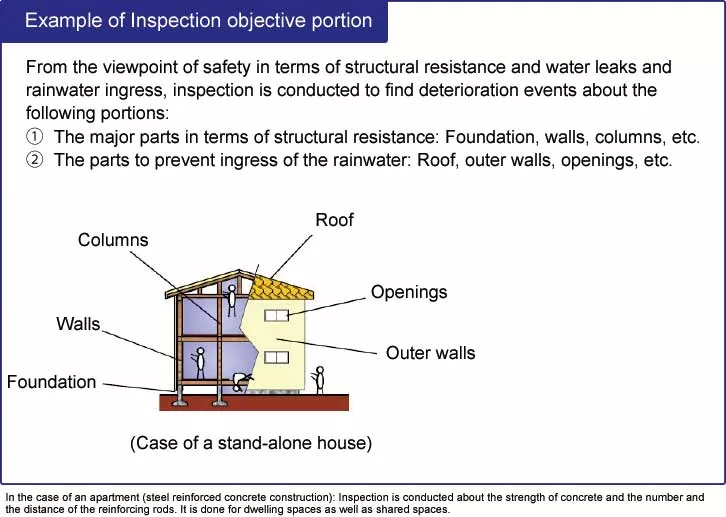
Measuring compressive strength of concrete with a rebound hammer.
Measuring tilt of walls utilising a level gauge.
Checking for loose tiles with a tapping rod.
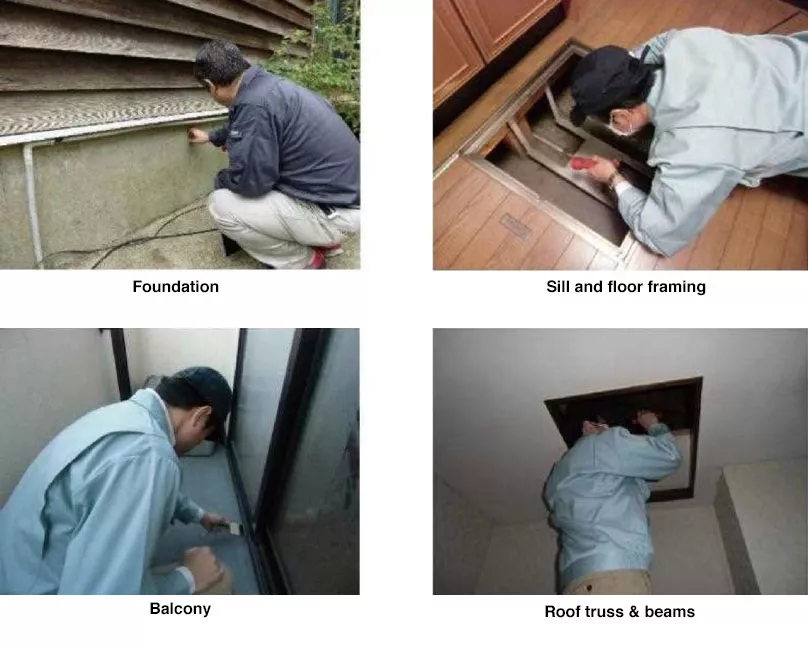
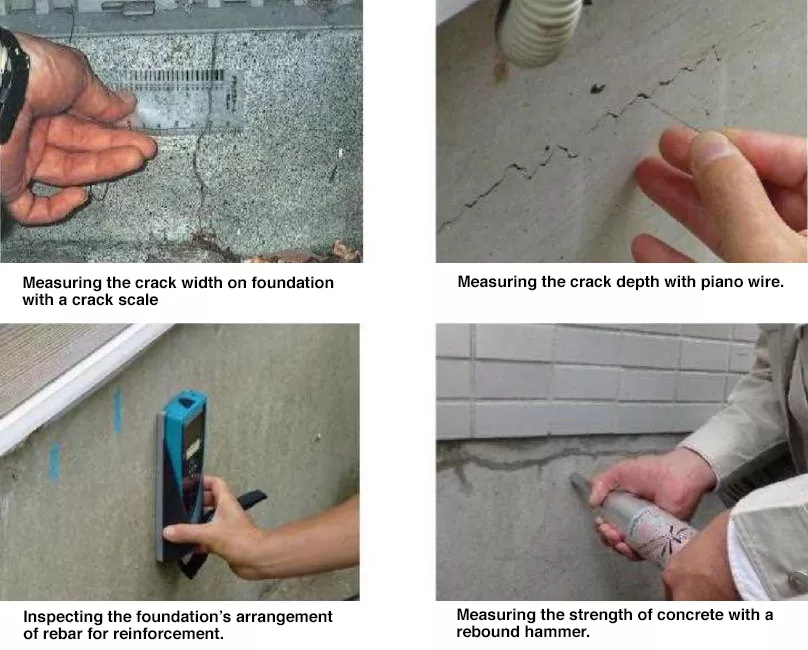
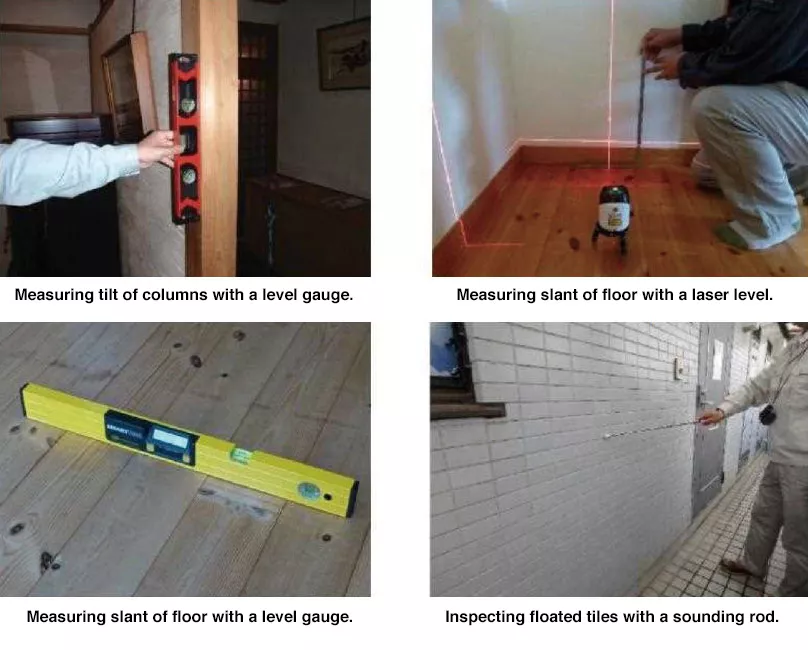
Advantages of a Home Inspection
Advantages for the Seller
Having an inspection done by a licensed inspector may reduce the chance for complaints or claims by a new owner once the transaction has been concluded. This is due to both parties agreeing upon the condition of the property before the the transaction is complete. An added bonus would be that by disclosing the result of a home inspection during the advertising of a property, a buyer may be more inclined to purchase as there is a lower chance of hidden damages appearing after purchase.
Advantages for the Buyer
The results of a home inspection may be the deciding factor when purchasing a home as it allows the buyer to confirm its condition before all transactions are finalized. The information from the inspection will help the buyer to know if renovations or repairs are necessary after the house is purchased. Furthermore, a buyer is able to use “building defects” insurance for pre-owned housing transactions when the inspection results meet certain criteria, such as no signs of deterioration nor of malfunction.
Client and Fee
The client of a home inspection may either be the seller of a pre-owned home, or the person intending to purchase it. In the event that the buyer is the one requesting a home inspection, they will need to request that a real estate company mediates between them and the seller. The mediating real estate company will then ask the seller to consent to having a home inspection.
*In the case of inspecting a condominium or apartment, you may need to have the consent of the management association as shared spaces may be included in the inspection.
The standard cost of a home inspection is not set and will vary depending on the inspection contractors. Though it also depends on the size of the location to be inspected, such as stand-alone houses or apartments, the current market price can be around 50,000 to 60,000Yen. The fee is usually paid by the client requesting the home inspection.
In Japan, in regards to pre-owned homes, home inspections are still not a very common practice. When a buyer requests an inspection, it is necessary to gain the consent of the seller before proceeding. Once consent is given, various arrangements with the seller such as deciding on an inspector, the time of the inspections, and who will pay for it will need to be settled. We here at PLAZA HOMES are able to provide assistance in the process of a home inspection from the introduction of an inspection contractor, to arranging an inspection upon request from either party. If you are interested in getting a home inspection, please feel free to contact us at anytime.

- Apartments and Houses for Sale in Tokyo
- Listings of apartments, condominiums, and houses available for purchase in Tokyo.






